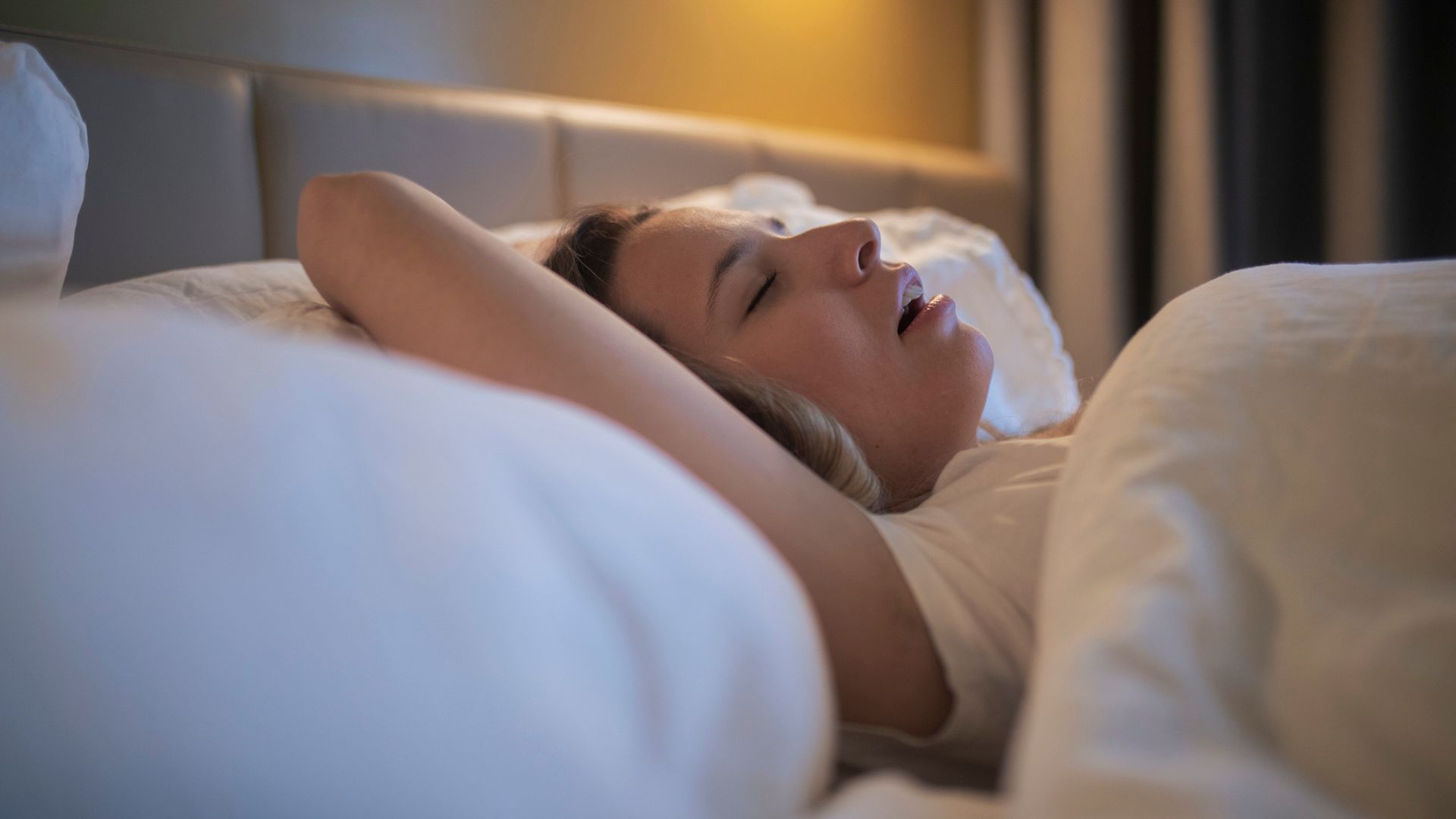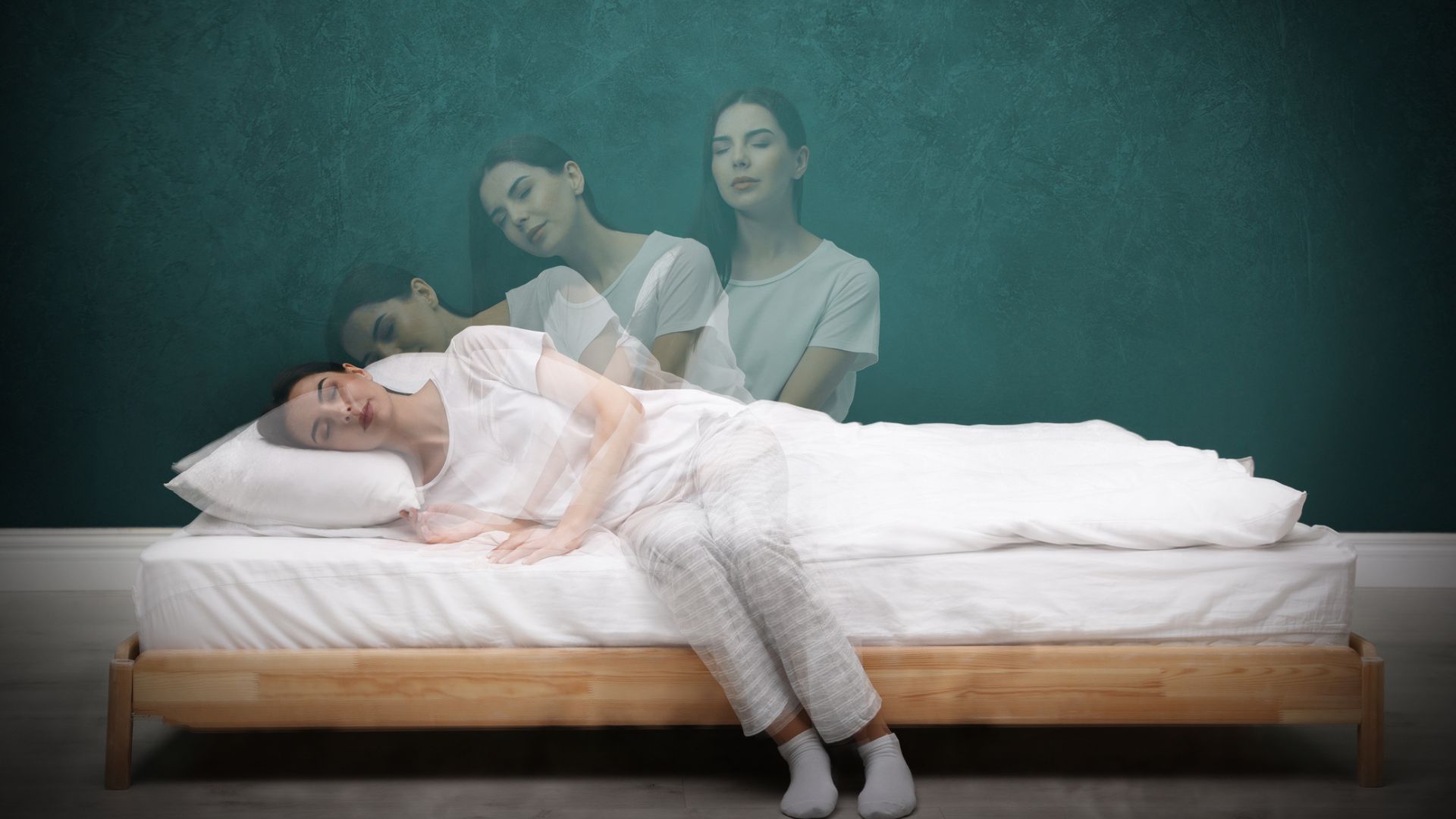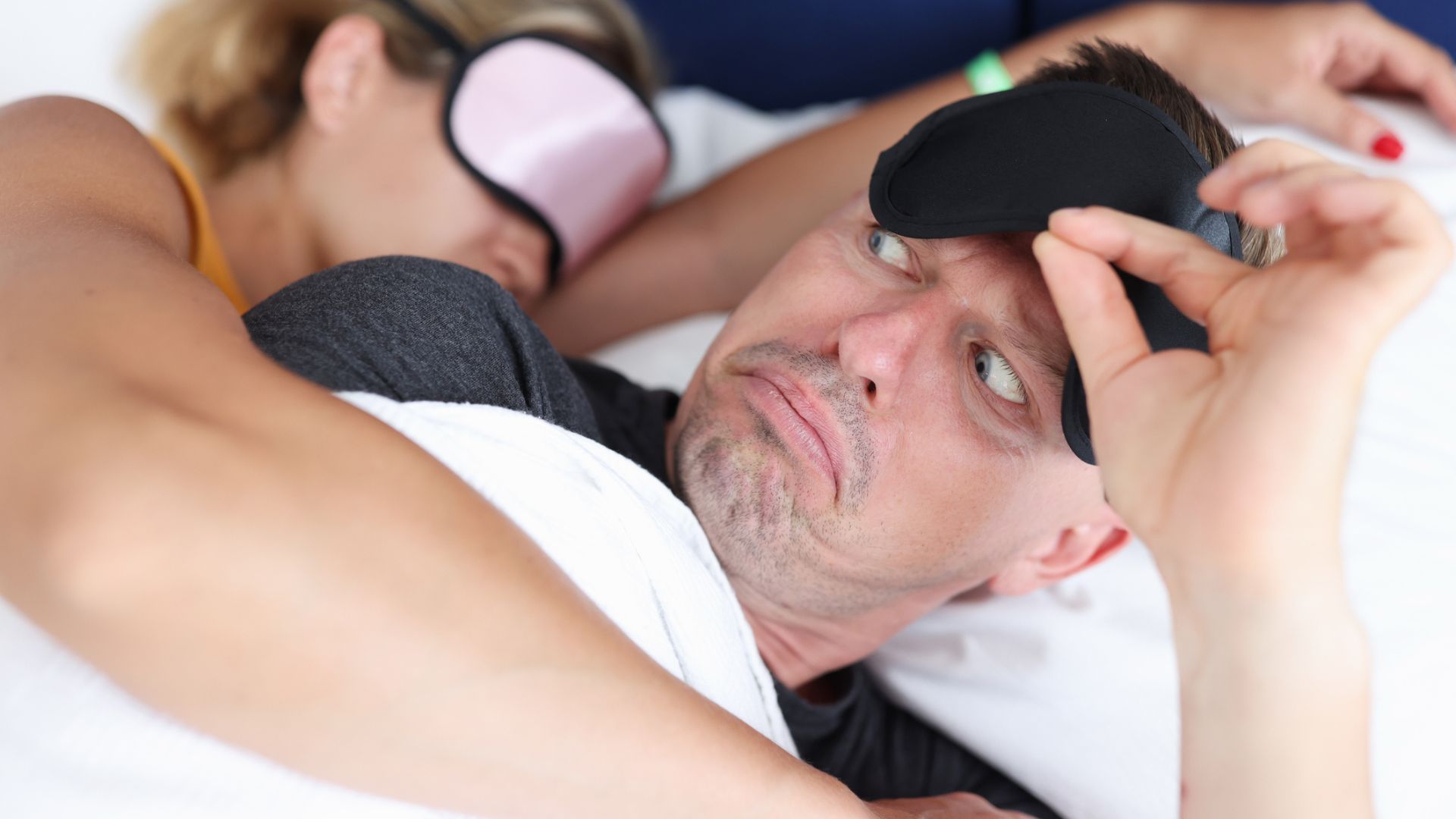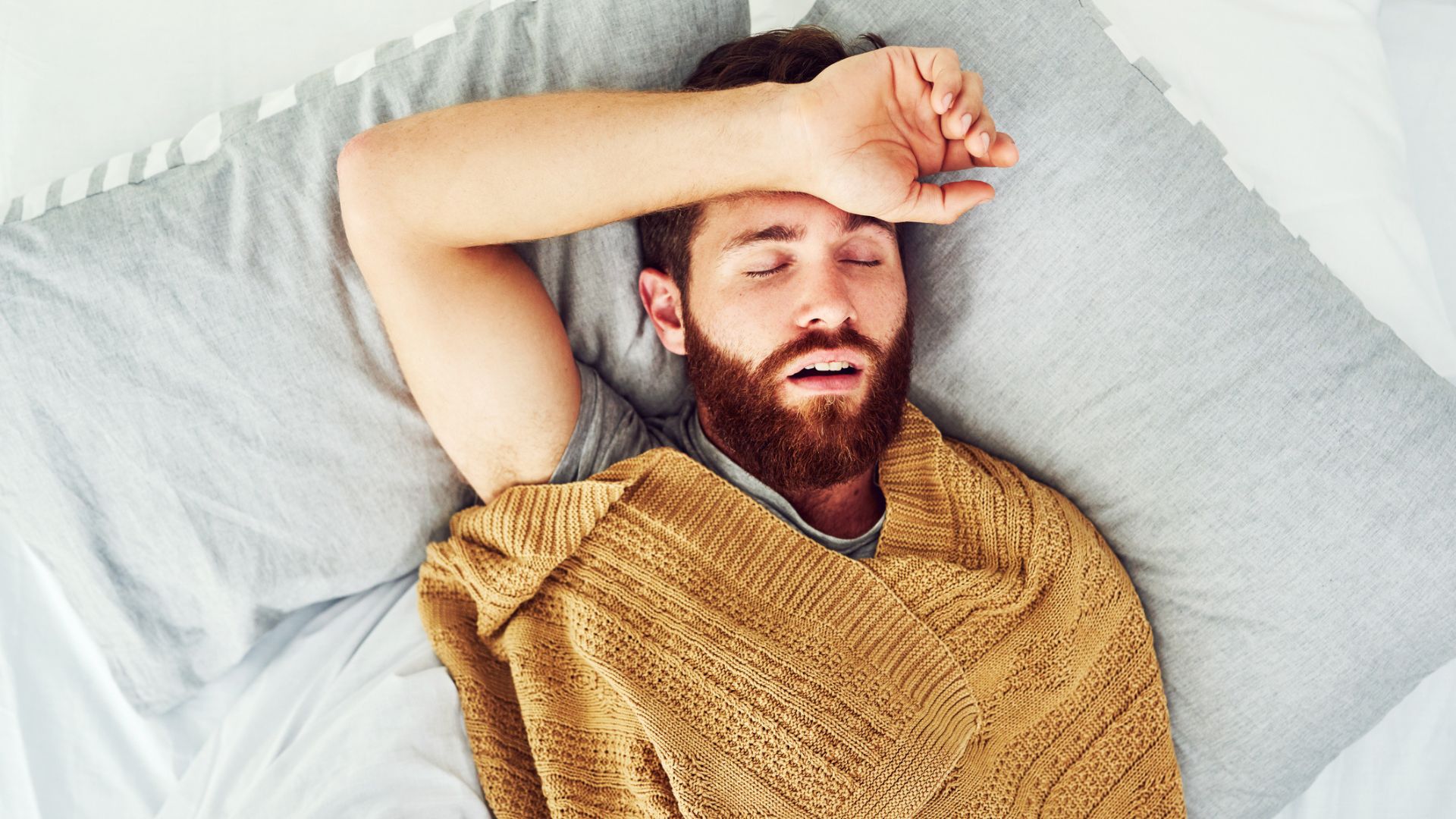
I’m a nighttime rambler, chatting away to anyone who’ll listen (usually my slightly fed up husband) despite being fast asleep. Sometimes, I spout nonsense other times, I have full conversations with my partner, responding to questions as if I were awake. In fact, it was only recently that my husband realized I wasn't awake during these interactions.
Sleep talking is a type of parasomnia, which means any unusual physical events or experiences that occur during sleep. I’m not only a prolific sleep talker, but I occasionally experience night terrors, too. So, do the two go hand in hand? And what makes someone susceptible to parasomnia?
As well as divulging some slightly embarrassing but funny nighttime conversations I’ve had recently with my husband, I’m taking a deeper dive into what parasomnias are, why they happen and whether you can stop them.
What is parasomnia?
Parasomnia refers to any unusual or undesirable physical activity or experiences that occur during sleep. This can include:
- Sleep walking
- Sleep talking
- Sleep-related eating disorders
- Sleep terrors
- Nightmares
Each type of parasomnia has different characteristics and symptoms, but some are more common than others. For example, the prevalence rate of sleep walking in adults is 22.4%, whereas sleep-related eating disorders only had a prevalence rating among adults of 4.5%.

My experience of parasomnia
Growing up, I experienced almost constant nightmares, well into my late teens and early adulthood. It was around my teen years when I experienced a sleep terror which I still have regularly to this day. For me, this presents itself as a semi-awake, semi-asleep hallucination of spiders crawling on my bed. I’m awake enough to stand up, scream, and turn the light on, but asleep enough to still ‘see’ my nightmare (the spiders).
Alongside this, I sleep talk almost every night. From in-depth conversations with my partner to general ramblings. Sometimes, I appear lucid and awake, even sitting up with my eyes open and facing my husband to talk. Other times, it’s more clear that I’m asleep.
My husband has been noting down my sleep talking for the past month, here’s some of the highlights:
- “Everyone knows McDonalds!”
- “The hairdryer is going to be angry at me, isn’t he?”
- “You made him play the violin while I’m trying to sleep!”
- “Can I train an elephant?”
- “There’s an elephant in my book.”
- “Why do we have time?”
- “Why do we have imagery?”
As you can see, it’s quite a variation of topics and themes. My husband often watches TV next to me as I sleep, and he’s said he usually sees a direct correlation between what I say and what I can hear on the TV. For example, when I accused him of making someone play violin in our bedroom, a character in a program had just said ‘violin’. So, why does this happen?

What causes parasomnia?
Many things cause sleep talking and other parasomnia experiences. Some studies have suggested sleep talking is most prevalent in individuals with mental health conditions, like PTSD, anxiety, depression. However, it can also be genetic. If both of your parents sleep talk, it’s likely you will, too.
Other causes of parasomnia include:
- Stress
- Sleep deprivation
- Alcohol and substance use
- Fever
- Certain medications
- Underlying medical conditions
Most of the time, sleep talking is harmless and not an indication of something more sinister. But if you’re worried or have other concerning symptoms, it’s always a good idea to talk to a medical professional.
Interestingly, many studies cite that sleep talking is not usually a direct representation of a dream, which I initially assumed. For me, after looking into the causes, I’d say it’s a combination of stress and anxiety. After a particularly stressful or busy day, my husband often reports that I have talked a lot in my sleep. I've also previously taken medication for mental health problems, like depression and anxiety, which could be a risk factor.
Interestingly, my dad also sleep talks and sleep laughs (an affliction that’s particularly embarrassing on public transport), and my mum experiences the same spider-focused night terrors as me, so I think genetics is definitely at play here, too.
To find out the root cause of your parasomnias, taking part in a sleep study can shine light on your behavior and uncover why they are happening.
Does parasomnia affect sleep quality?
The short answer is yes, parasomnia can affect sleep quality. Different types of parasomnia will affect our sleep in different ways. A recent study into the influence of sleep talking on sleep-dependant cognitive processes, found that the group of sleep talkers had a significantly worse self-reported sleep quality than the ‘healthy’ participants.
During this study, there was also a slightly worse memory performance among the sleep talking participants. It also found that sleep talkers were more associated with sleep fragmentation.

In general, parasomnias are defined by not having a deleterious effect on sleep quality, meaning they are not significantly harmful to the rest you get. However, increased heart rate and frequent nighttime wakefulness is often seen with many parasomnias, which after a while may lead to poorer quality sleep.
In my experience, night terrors definitely impact the quality of my sleep because I wake up fully. It also takes a long time to calm myself down enough to fall back asleep. However, I don't believe that sleep talking impacts my sleep as I feel as well-rested in the mornings after sleep talking as nights where I haven't slept talked.
How to stop parasomnias and get better sleep
There’s not a guaranteed way to stop parasomnia. However, if it’s not caused by an underlying medical condition or genetics, there are ways to reduce the likelihood of experiencing parasomnias and get better sleep. For more advice, read how the experts advice stopping sleep talking.
Stick to a consistent sleep schedule
Going to bed and waking up at the same time every day can help regulate your circadian rhythm and energy levels. This in turn helps you fall asleep faster and sleep deeper throughout the night. Consistency is key, so you should try and keep the same sleep schedule even at the weekends.
If your body and mind recognize when it's time to sleep compared to when it's time to feel awake, you're less likely to experience sleep disruptions.
Avoid alcohol and late night snacks
Alcohol is reported to be a big contributor to parasomnias. Its effect on sleep quality has been well documented, with even one drink negatively impacting the rest you get. To reduce the likelihood of experiencing a parasomnia, reduce your alcohol intake in the evenings.
It’s also a good idea to avoid late night snacks, especially sugary foods and big meals before you go to sleep. These can cause spikes of energy which can disrupt your sleep.
Create a calm and comfortable sleeping environment
Your sleeping environment can impact your sleep a lot. Ensuring you have reduced ambient noise and light can help avoid disruptions to your sleep. Try black out curtains or white noise machines.
It’s also important to choose the best mattress for your sleep needs and style, as well as the best pillow for your sleeping position. If your body is supported and comfortable throughout the night, you’re likely to sleep deeper.







